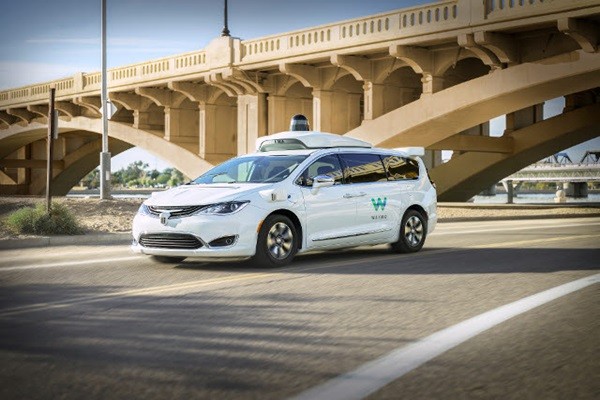Samsung Electronics has begun the development of core chip that will be used for Google’s next-generation self-driving car. There is a high chance that the chip will be produced through Samsung Electronics’ foundry. By obtaining a project for one of the world’s best autonomous driving technology, Samsung Electronics has gained an opportunity to make a “quantum jump” in its system semiconductor capability.
Samsung Electronics recently obtained a project from Google regarding design of chip that will be used for Google’s self-driving car called “Waymo”. It will design a chip that is able to process data collected through various sensors such as LiDAR (Light Detection and Ranging) and radar and control every function of Waymo by exchanging information with Google’s data centers in real time. Just like a PC’s CPU (Central Processing Unit) or a smartphone’s AP (Application Processor), it will act as the “brain” of Waymo.
Autonomous driving technology allows self-driving cars to operate without any intervention by drivers. As the technology is directly related to AI (Artificial Intelligence), Samsung Electronics plans to utilize its cutting-edge design technologies such as NPU (Neural Processor Unit) that copies a human brain’s neural network and advanced CPU and GPU for the project. Multiple officials from the industry said on March 14 that Samsung Electronics plans to include a variety of functions into the chip in order to satisfy specifications requested by Google and that the chip will satisfy “level 3” that corresponds to conditional automatization.
It is reported that the project will be handled by Samsung Electronics’ DS (Device solutions) Division’s System LSI Business’s Custom SOC Business Team. Once the team is finished with the design, the chip will most likely be produced through EUV (Extreme Ultraviolet) process.

Waymo LLC is the world’s biggest autonomous driving technology development company and a subsidiary of Google. It began its business in 2009 and it was separate from Google in 2016. It manufactures self-driving cars that are called “Google Car”. Compared to other self-driving car makers as well as automakers, its database on autonomous driving technology is overwhelmingly extensive. It has conducted test-drives of more than 20 million miles at various locations in the United States. It began a self-driving taxi service called “Waymo One” in 2018 and is preparing to have the service available throughout the country. An investment bank called UBS estimated that Waymo’s operating profit in 2030 will be around $114 billion.
Although there were many cases where Waymo LLC had worked with automakers on platforms, the company has not had much collaboration in chip development. Although there was a news back in 2017 that the company was planning to collaborate with Intel on chip development, there has not been any news on what methods they have been using on chip development. It seems that the company plans to secure competitive edge by mass-producing its own chips that satisfy conditions of its autonomous driving technology through collaboration with Samsung Electronics.
By working with Waymo LLC, Samsung Electronics has gained a golden opportunity to make a quantum jump in the global market for semiconductor chips used for autonomous driving. Besides Waymo LLC, Samsung Electronics has been working with Tesla since 2016 regarding development of chips related to autonomous driving. It is reported that the size of the project with Waymo LLC is just as huge as that of the project with Tesla.
Samsung Electronics believes that it will be able to drastically strengthen its capabilities in system semiconductor design and production by designing important chips that global IT companies such as Google, Apple, and Tesla need in order to survive in the autonomous driving ecosystem. Regarding the collaboration with Waymo LLC, Samsung Electronics said that it cannot confirm any information related to its customers.
Staff Reporter Kang, Hyeryung | kang@etnews.com